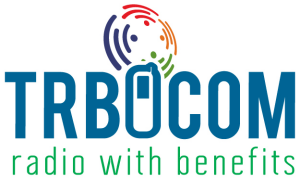
The TRBOCOM
Advantage:
• Low Monthly Cost
• No Per Minute Charges
• Talk - One To Many
• Large Coverage Area
• Extended Battery Life
• GPS & Text Available
Coverage Maps

HAND-HELD CELL PHONE BAN
AVOID FINES AND PENALTIES
One of the most important business decisions for 2013 is providing the right tools to protect your drivers, the public and your insurance and business liability. Use of cellular telephones may jeopardize your company operations and increase your business liability risks. Below is an overview of the hand-held cellular phone and texting restrictions implemented across the country. Local restrictions and penalties may be different in your community. We encourage you to review the impact this will have on your business and organization. We can help you evaluate the impact of wireless communications for your company and provide you a reliable, compliant and affordable radio solution for your business.
Final Rule: Drivers of CMVs: Restricting the Use of Cellular Phones
AGENCIES: Federal Motor Carrier Safety Administration (FMCSA) and Pipeline and Hazardous Materials Safety Administration (PHMSA), DOT.
ACTION: Final rule.
DATES: This rule is effective January 3, 2012.
Part 392 - Driving of Commercial Motor Vehicles
392.80 Prohibitions against texting
392.82 Using a hand-held mobile telephone
FMCSA and PHMSA are amending the Federal Motor Carrier Safety Regulations (FMCSRs) and the Hazardous Materials Regulations (HMR) to restrict the use of hand-held mobile telephones by drivers of commercial motor vehicles (CMVs).
Penalties
- Any violation of this restriction may result in a civil penalty imposed on drivers in an amount up to $2,750.
- A civil penalty may be imposed on employers who fail to require their drivers to comply with FMCSRs, in an amount up to $11,000.
- Disqualification of a CMV driver for violations of the Act and its regulations is also within the scope of the Agency's authority under the 1984 Act.
Two-way Radios and Push-To-Talk
FMCSA Response
383.5 Definitions
Mobile telephone means a mobile communication device that falls under or uses any commercial mobile radio service [CMRS], as defined in regulations of the Federal Communications Commission, 47 CFR 20.3. It does not include two-way or Citizens Band radio services.
FMCSA used the FCC's definition for "mobile telephone" in order to ensure consistency between the terms used in the FCC and FMCSA rules and to address emerging technologies.
Because the [Nextel] push-to-talk features use commercial mobile radio services to transmit and receive voice communications, the device is a mobile telephone; it also requires the driver or user to hold it. Therefore, its use while driving a CMV is the same as that of a hand-held mobile telephone and is prohibited.
The push-to-talk feature of a mobile telephone can be replaced with the use of two-way radios or walkie-talkies:
The use of CB and two-way radios and other electronic devices by CMV drivers is outside the scope of consideration in this rulemaking.
FCC Definitions:
Commercial Mobile Radio Service [CMRS]
A mobile service that is:
-
- provided for profit, i.e., with the intent of receiving compensation or monetary gain;
- An interconnected service; and
- Available to the public, or to such classes of eligible users as to be effectively available to a substantial portion of the public; or
- The functional equivalent of such a mobile service described in paragraph (a) of this section.
42 States have a total or partial ban on texting while driving

Map of hand-held cellphone bans (all driver)
Approximately 4 million commercial drivers will be affected by this final rule.
We Have Your Solution: A Mototrbo Commercial System
- DOT Regulation Compliant
- Minimizes Distracted Driver Issues
- Reduces Litigation Exposure
- Improves Safety





